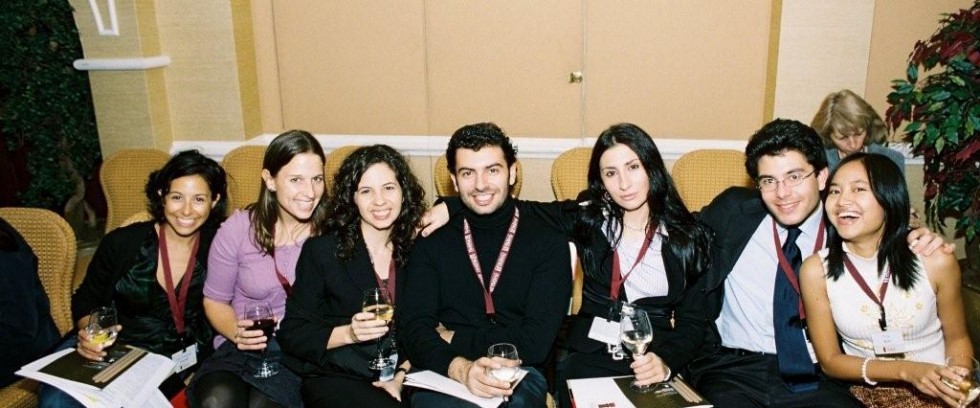
By Sergey Tantushyan (Sauvé Scholar 2008-2009)
Attending the 2008 Trudeau Conference was something more than going to another international conference where one is likely to meet interesting people and hear interesting thoughts and later use them at a social gathering, with a glass of wine in hand and without any respect to copyright issues. It was an opportunity to get to know better the country where we, the Sauvé Scholars would work and do their research – a very good reason to attend.
Being neighbors (our two foundations share the building), it was still a challenge to get to the conference. Most of us registered late due to being involved in the Obama campaign, and our Executive Director was a bit worried that we might not be able to participate. Who knows, may be the breakfast our foundations had together before played a key role in getting us to the conference.
The major issue looked at from different viewpoints (such as economic, political, social and military) throughout the three days of the conference was the place of Canada in the world. Indeed, the stereotypical, although n intelligent view of Canada is that of a powerful country not much involved in international relations. Although the international public is aware of the fact that there are Canadian troops in Afghanistan and an active trade exists between Canada and China, the U.S. and Europe, the country is perceived to be a passive international relations participant.
In this light the conference tried to define Canada’s further global endeavors to redefine its place on the blueprint of international relations. Main economic partners of Canada were pointed out and the impact of their non-economic policies on Canada was discussed. The audience was reminded of many amazing facts about Canada as an international player that remain unknown to a wider international audience. For example, that Canada is the biggest trading partner of the U.S.A.; there is a larger volume of sales between the U.S. and Canada, than between the U.S. and the whole European Union. Canada’s role in military operations of America was a hot topic of discussion.
Considerable attention was paid to the environment issue. Although Canada is one of the countries most concerned with protecting the environment, due to its active and growing economy Canada’s per capita greenhouse gas emissions are the third-highest in the world, and it is ranked 14th out of 17 industrialized countries on a range of environmental indicators trailing only Australia (27.7 tonnes per person) and the United States (24.4 tonnes).
Importantly, the conference was a marketplace for sharing views and hearing new ones, and not only on Canada’s global challenges and possible inputs. Based on their backgrounds, each of the participants was assigned an area of discussion, such as Economics, Marketing, Politics, and an area in the world, for example: the Arctic, Africa, China, U.S.A. Participation in two different small discussion groups offered each Scholar a unique opportunity to hear in-depth information on the narrower topic(s) of their professional interest, while we still enjoyed the benefit of being a participant in larger and more general discussions.
The fact of having Sauvé Scholars as participants in the conference raised interest among other participants. As for me, I received a couple of invitations to other conferences, have been interviewed for Radio Canada and by the organizers from the Trudeau Foundation. Other scholars made useful connections as well, actively networked, requested and later received materials useful for their academic research. Undoubtedly the conference was a good opportunity to raise awareness of the Sauvé Scholars Program, to talk more of what it does, who the Scholars are, and finally to extend our professional networks.
In conclusion I can say that the quality of discussions, who the speakers were, the well thought out and courageous way of combining different formats during the conference, and of course the delicious food served, all reconfirmed my approach to the event making me sure that the Trudeau Conference was of greatest benefit to the participants from a neighbor Foundation.
